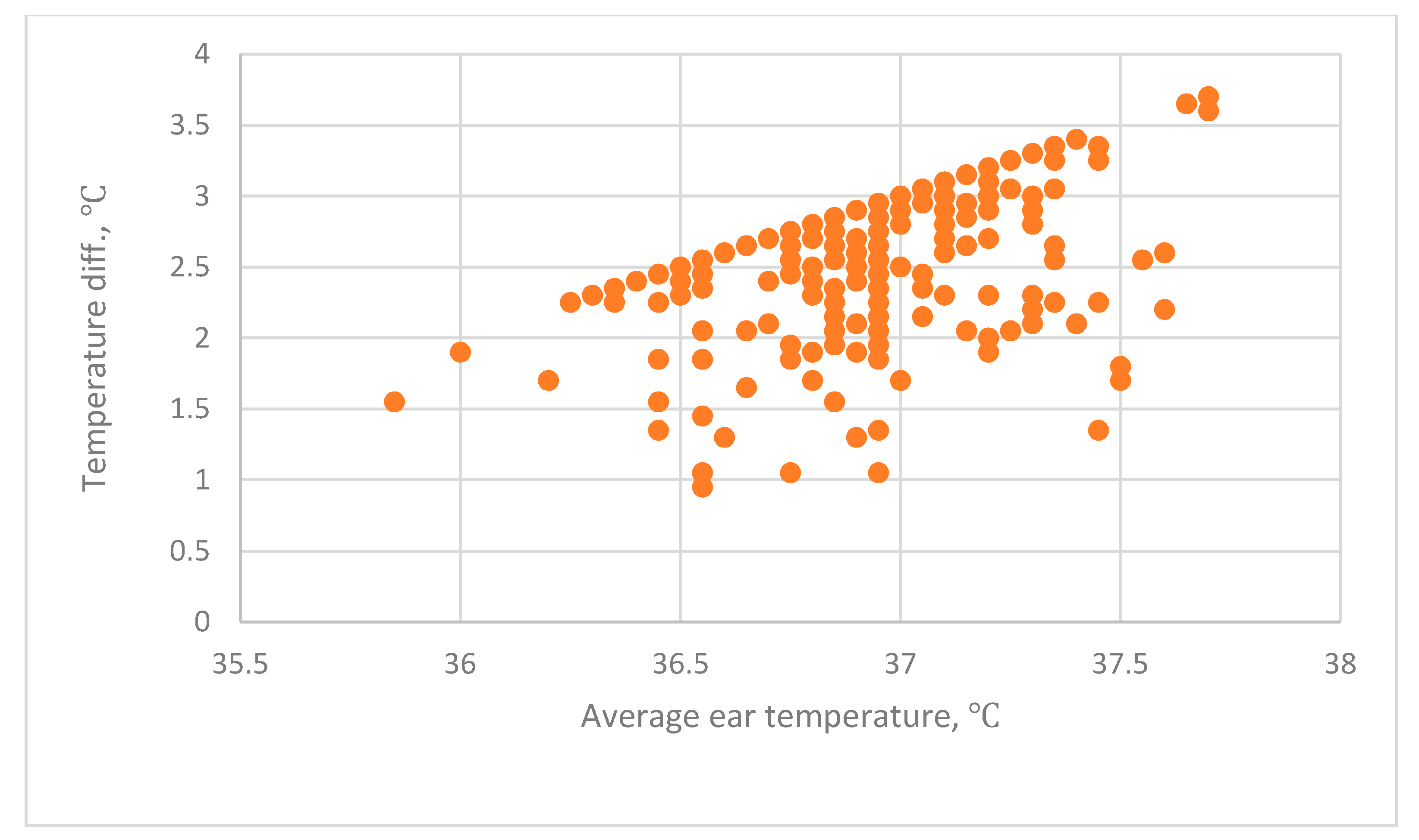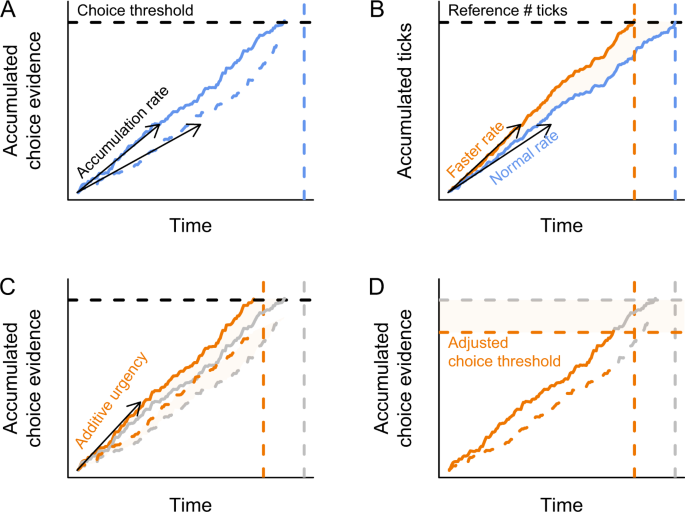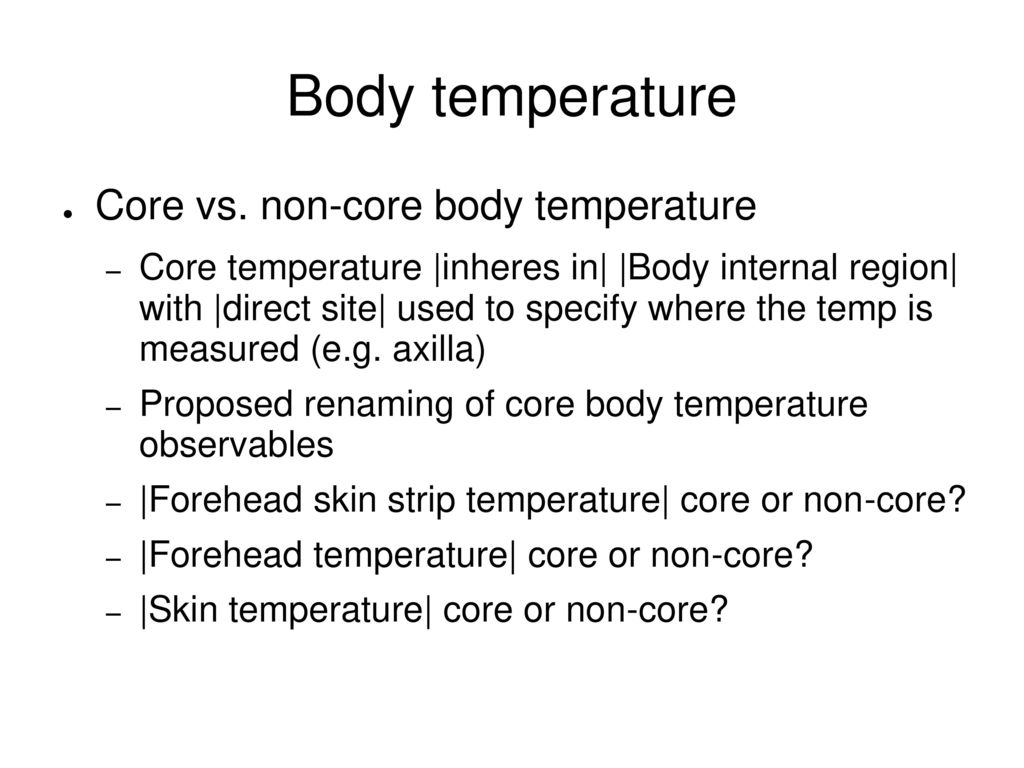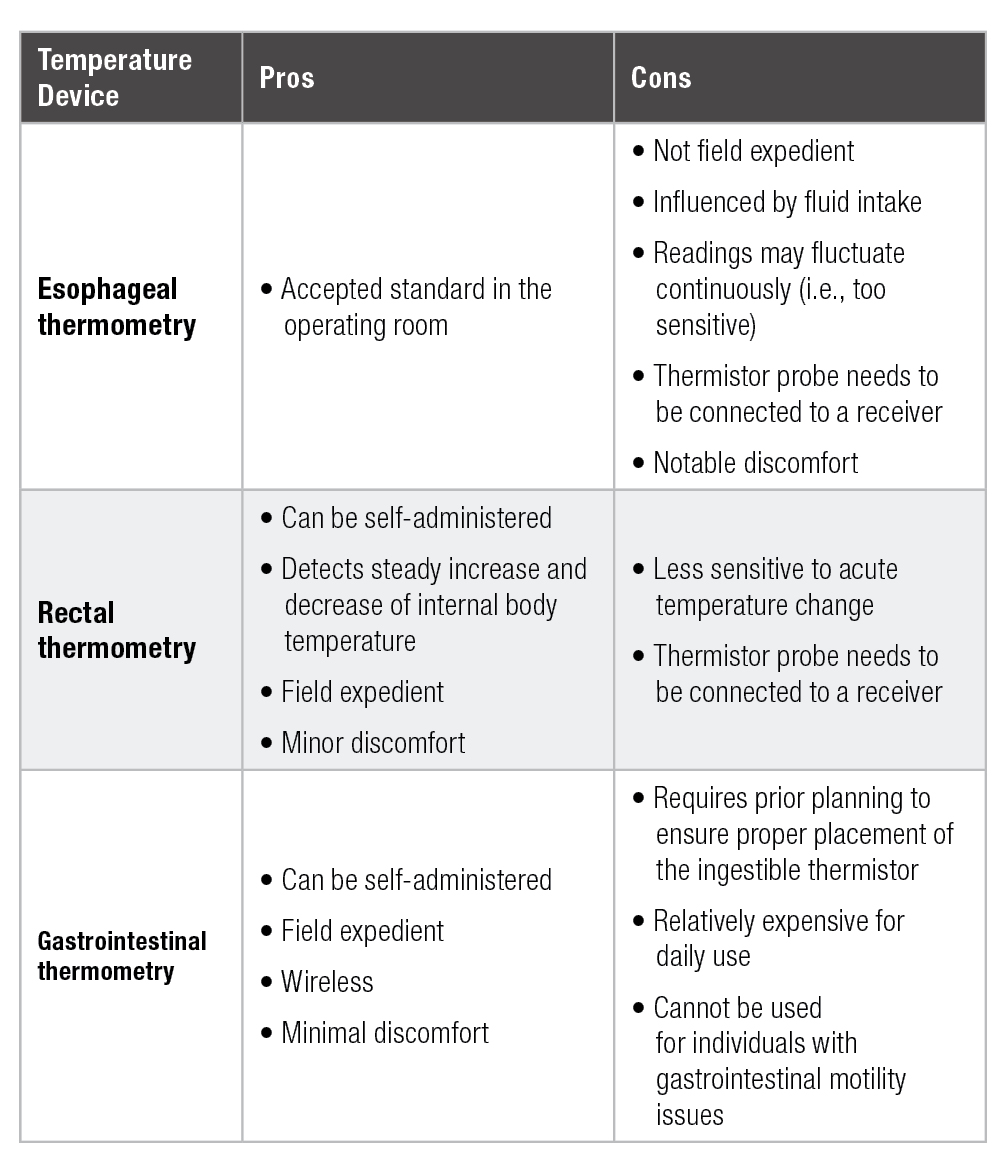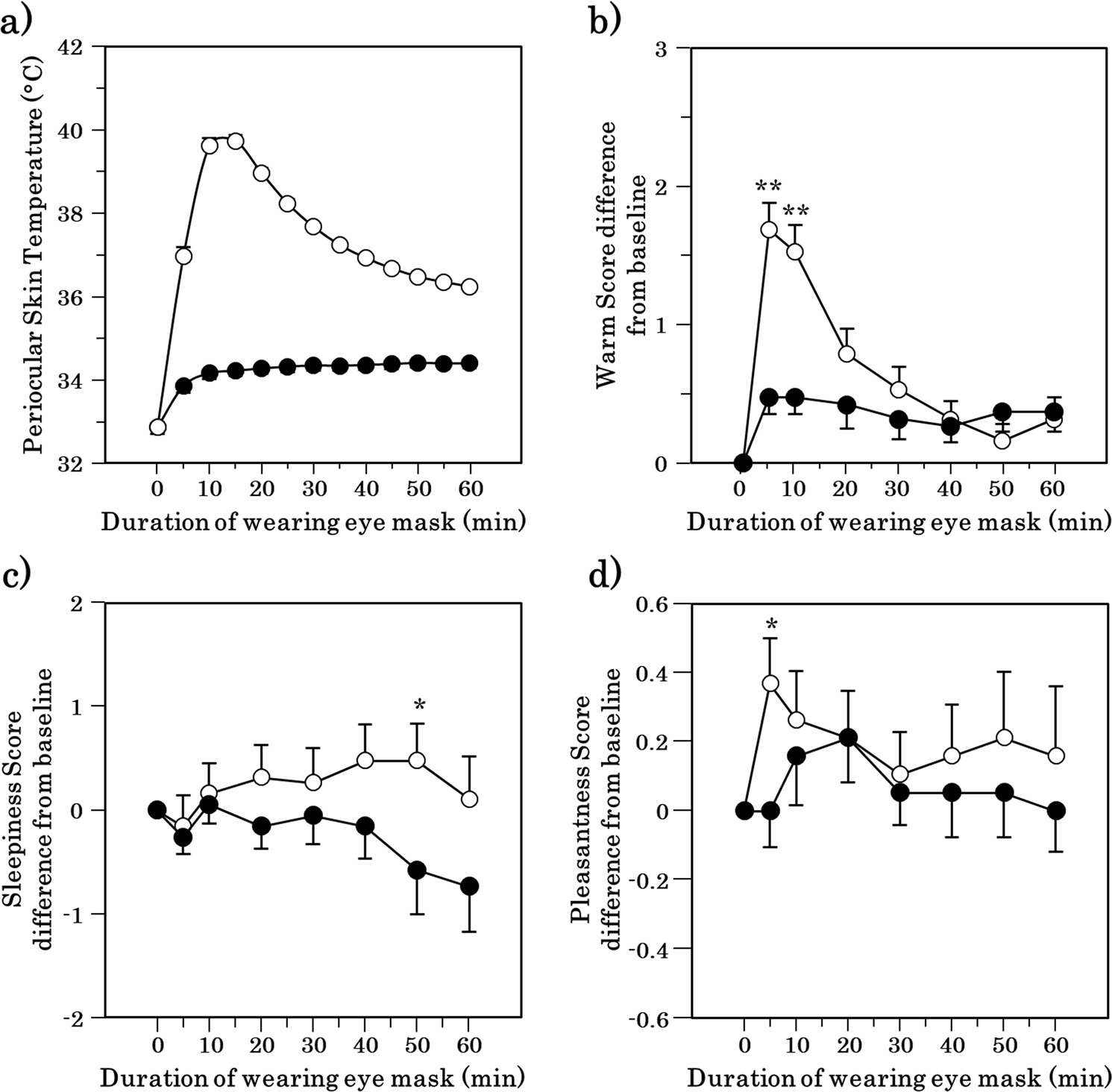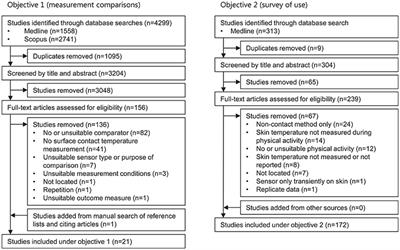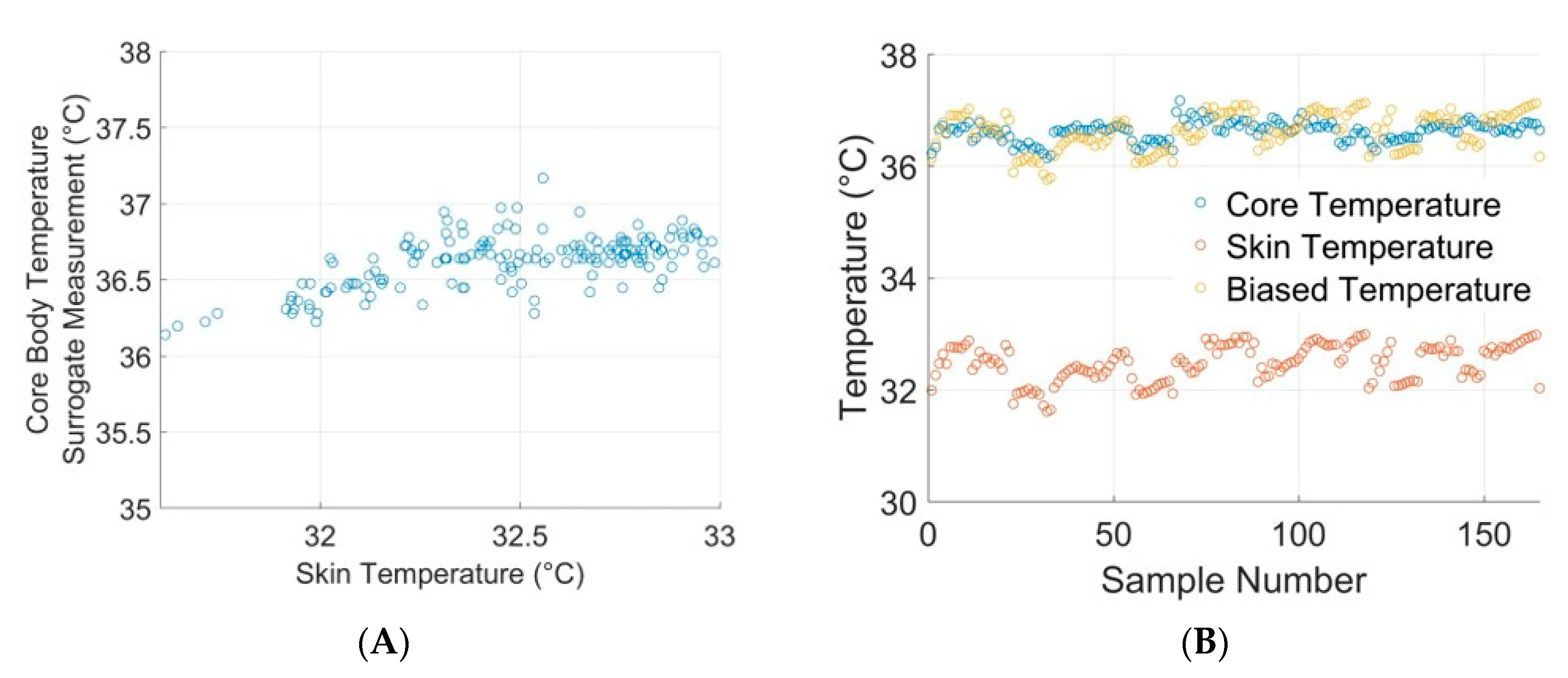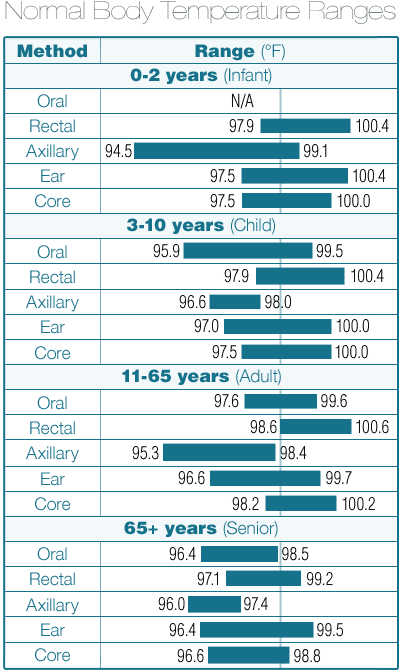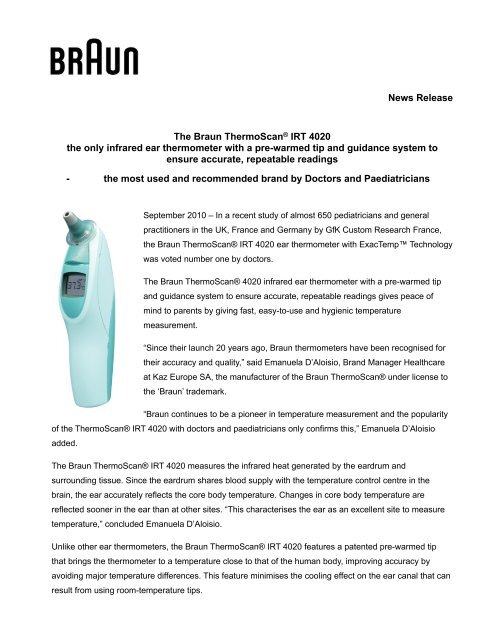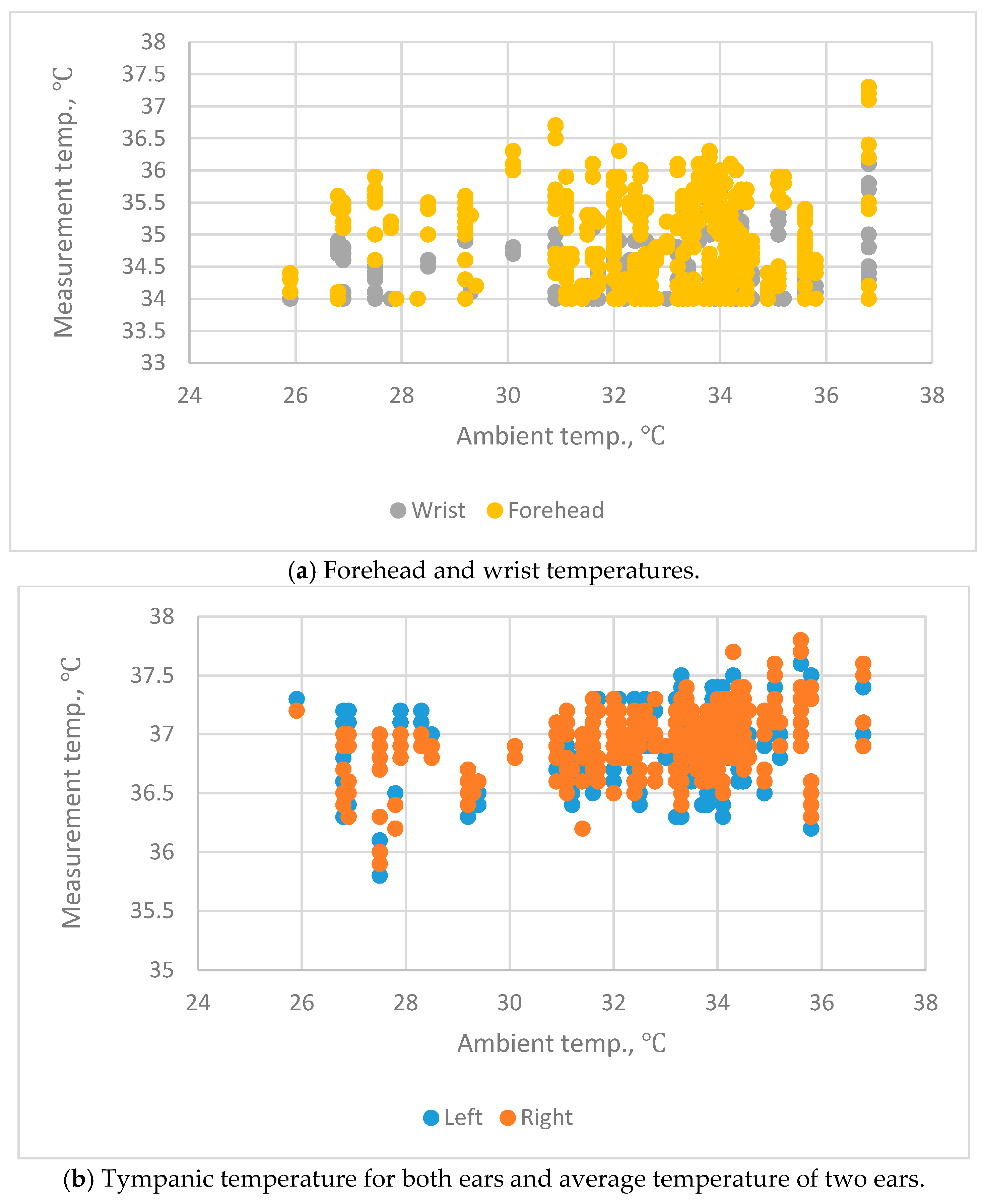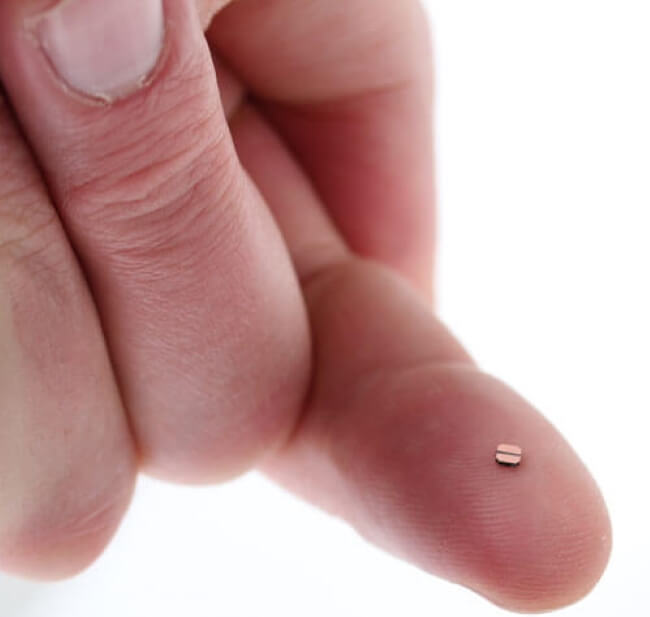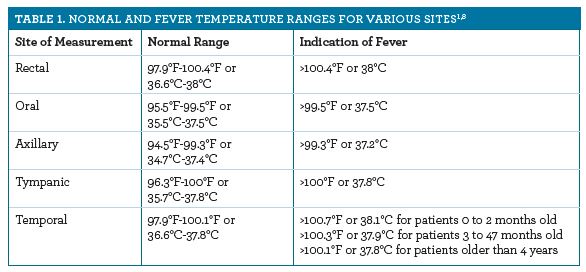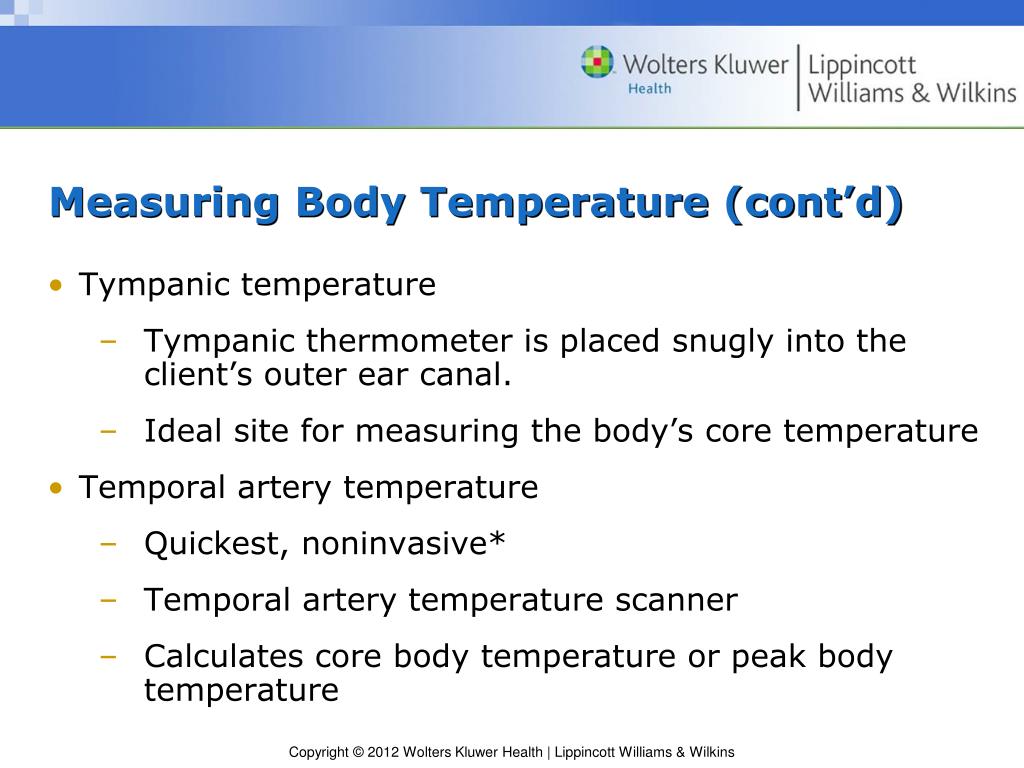
Core Body Temperature Measurement Sites
The pulmonary artery catheter which measures blood temperature is considered the gold standard for measuring core temperatures. A measurement comparison of the new sensor with the rectal temperature revealed that the double sensor i differed up to 006 c from the average of the rectal temperature ii showed with increasing ambient temperatures increasing concordance correlation coefficients and iii exhibited a more rapid response to the core body temperature changes for all resting periods and at all ambient. Temporal measurements are closer to true core body temperature and provided that the probe has been properly positioned will give readings that are closer to average body temperatures of 986 f. 2 autonomic as well as behavioral responses to changes in temperature maintain homeostasis or a range of normal around 37 c. Ear temperature measurement may be acceptable for observing trends in body temperature but is less useful in consistently identifying fevers. 1 core body temperature is regulated by both peripheral and central receptors that are integrated within the hypothalamus.
Until recently direct measurement of core body temperature required surgical insertion of a probe so a variety of indirect methods have commonly been used. The normal body temperature for an adult is around 986f 37c but every persons baseline body temperature is slightly different and may consistently be a little higher or lower. Climatic injuries including hypothermia hyperthermia and heat stroke are common in many sports activities. 43 studied the tympanic membrane vicinity as the measurement site of core body. Temperature was the rectal temperature and the lowest temperature was the axillary temperature. As with rectal measurement sites tympanic thermometers may give slightly higher readings with the average temperature around 995 f.
Body core temperature tc measurement for the sportsperson can influence individual performance and may help to prevent injuries. The measurement of core body temperature may seem simple but several issues affect the accuracy of the reading. These include the measurement site the reliability of the instrument and user technique pusnik and miklavec 2009. Monitoring internal body tc accurately requires invasive methods of measurement. The di erence between the mean values for tympanic and rectal temperature was 02 c.
Random Post
- johnny depp body measurement
- body measurement chart definition
- jada pinkett smith body measurement
- body measurement bkn
- kalyani priyadarshan body measurements
- kanwal aftab body measurement
- spruha joshi body measurement
- nikki galrani body measurement
- benazir bhutto body measurements
- daniel radcliffe body measurements
- blackpink rose body measurement
- jannat body measurements
- hydration and body fat measurement
- gima ashi body measurements
- pear shaped body measurement
- body fat girth measurement calculator
- human body measurement data
- sruthi hariharan body measurement
- was body measurement
- lala anthony body measurement
- zac aynsley body measurements
- amanda schull body measurement
- cow body measurements
- vanessa bryant body measurement
- ahsan khan body measurement
- gurlez akhtar body measurement
- how to use body measurements
- owa body measurement
- se cupp body measurement
- triple h body measurement
- seolhyun body measurement
- normal body measurement chart
- arbaaz khan body measurements
- body temperature measurement devices boots
- body measurement game
- body voltage measurement instruction
- body type according to measurements
- emily browning body measurement
- chris jericho body measurements
- fitness body measurement chart
- abhirami suresh body measurement
- body measurement tracking ios
- key body measurements
- danielle rose russell body measurement
- body measurement fze
- sushant rajput body measurement
- neelofa body measurement
- lorena rae body measurements
- my body measurements virtual model
- namrata shirodkar body measurement
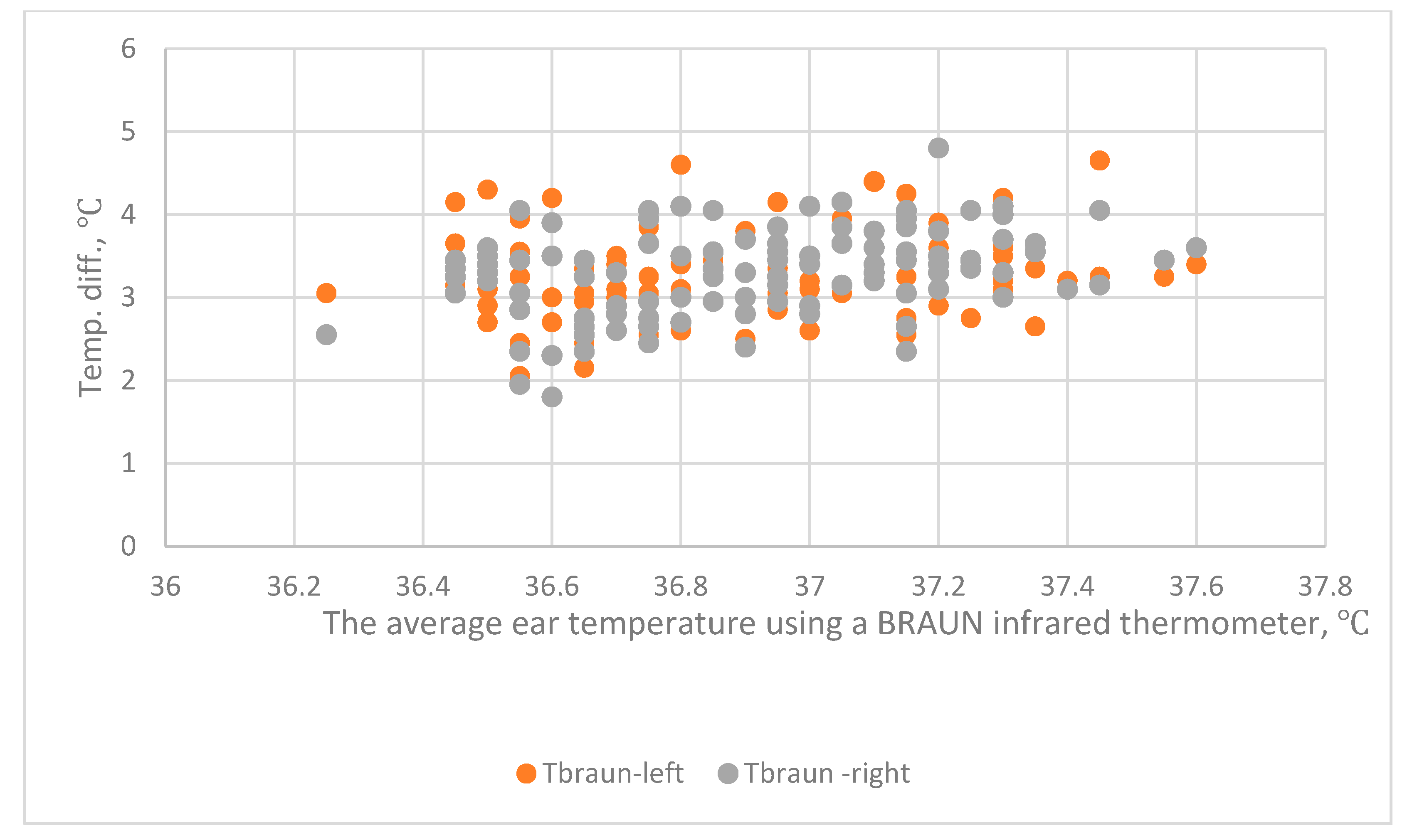

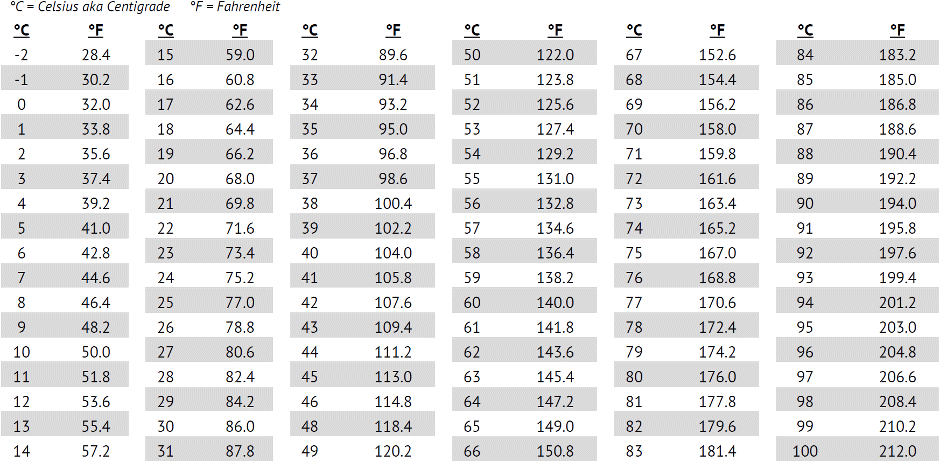

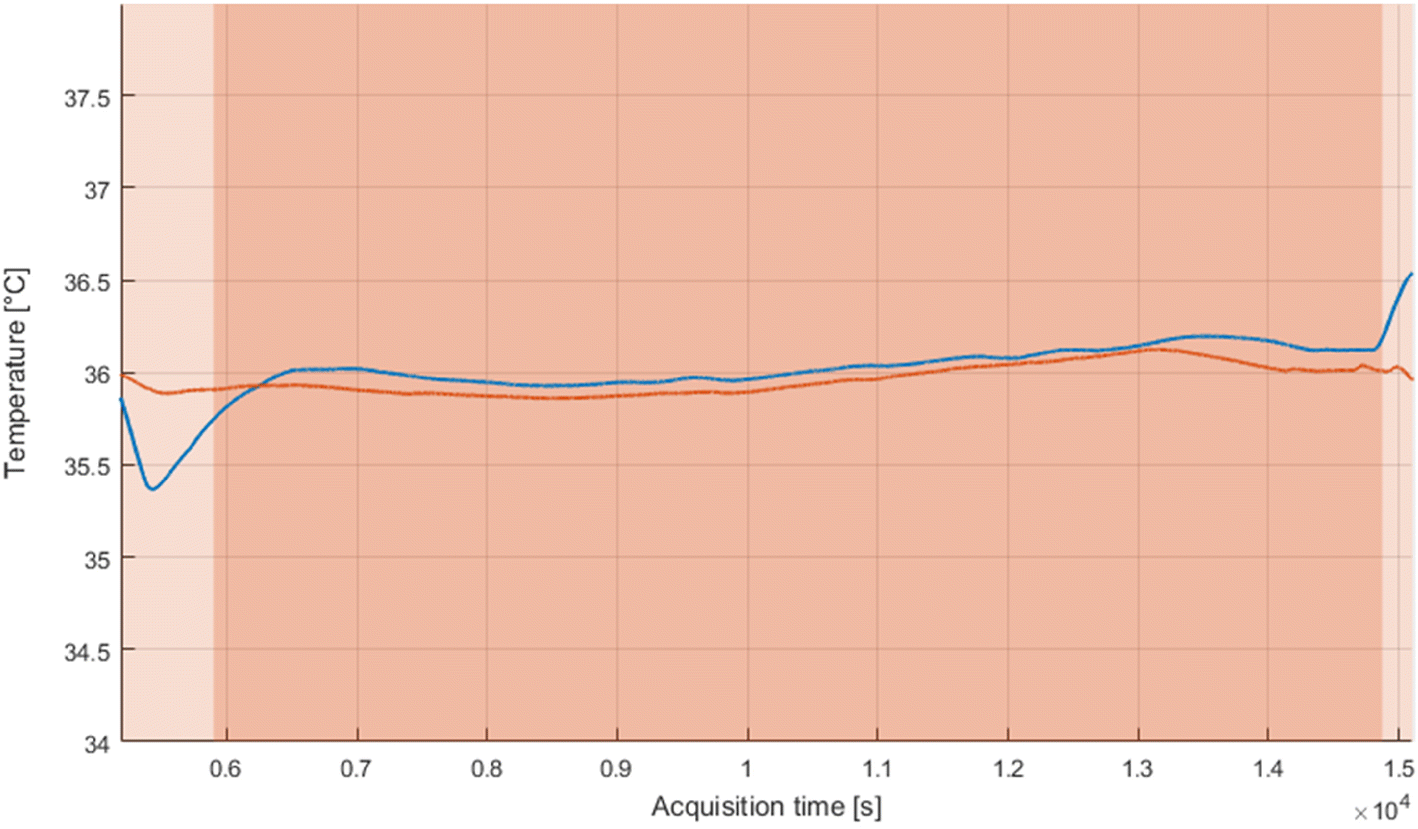



/cdn.vox-cdn.com/uploads/chorus_image/image/66146002/GettyImages_563934861.0.jpg)



